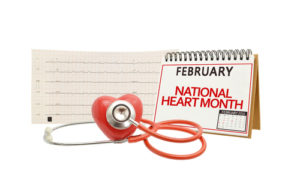
Finding out that you’re pregnant is one of life’s most joyous (and scary) events you can endure. Everyone at our dental office in Buckhead wants to send plenty of well wishes to all of the parents out there who are expecting a blessing of their own.
We wanted to set aside this blog to talk to the moms out there. Because whether you’re new to pregnancy and experiencing every special moment for the very first time, or a seasoned parental pro who knows exactly how this all goes, it’s essential not to put off your upcoming cleanings or treatments. We understand pregnancy brings up a lot of new concerns about your health and wellbeing, including taking care of your smile. Let’s talk about some of the most common concerns we hear from our patients about going to the dentist during pregnancy.
Common Concern #1: What if I need dental X-rays? Are they safe?
Most dental offices are equipped with state-of-the-art digital X-rays, eliminating the possibility of overexposure to harmful radiation for you and your baby. If you’re experiencing a dental issue, it’s advisable to get the necessary X-rays to fix the problem before it poses any risk of harming your developing fetus.
Common Concern #2: My gums are really bleeding. Should I call my Buckhead dentist?
If you’re pregnant and reading this, there’s no doubt in our mind that you would agree that being pregnant can change your body, usually in part due to fluctuations in your hormones. The American Dental Association says that as many as 50 percent of pregnant women can develop “pregnancy gingivitis.” It usually goes away after your child arrives, but it’s important to brush and clean your teeth regularly. If still concerned about bleeding in your gums, you can always reach out to us for help.
Common Concern #3: I’ve got morning, afternoon, and night sickness. Should I tell my dentist?
Sickness and vomiting during pregnancy are one of the most common side effects that most women tend to experience early on in their pregnancy. When you get sick, excess stomach acid can eat away at your tooth enamel leading to decay. Remember these helpful tips you can use at home to help protect your teeth from acid:
- Wait to Brush. Brushing immediately after vomiting can lead to damage. Acid weakens the enamel, and if you brush while the acid is affecting the enamel, you can cause scratches that bacteria can hide in. So wait at least an hour after getting sick to brush.
- Rinse with Water. While you’re waiting for the right time to brush, it’s a good idea to rinse your mouth out with water initially. Swishing water around in the mouth and spitting it out can remove a lot of acid.
- Keep Drinking Water. You’re already drinking a lot of water, so keep on doing it. The more water you drink, the less acid will stick around in your mouth.
- Scrape the Tongue. Don’t forget about your tongue. After vomiting, get a tongue scraper and gently run it down your tongue. You can successfully remove a lot of acid that would actually end up on your teeth.
If you’re really having a hard time and are worried about your smile, contact our dental office in Buckhead as soon as you’re feeling up to it. Seeing your dentist is crucial during your pregnancy, so let us work with you to determine what your needs are and how to proceed with your care during this special time in your life. We’re always here to help!














